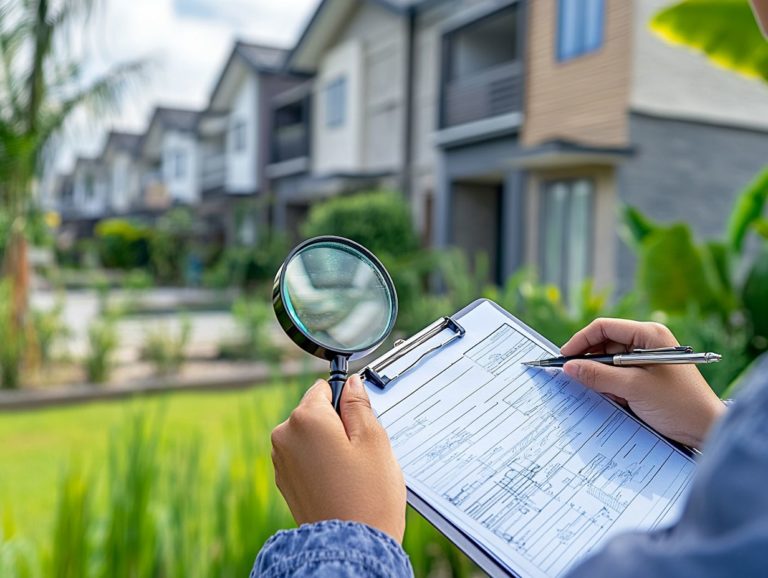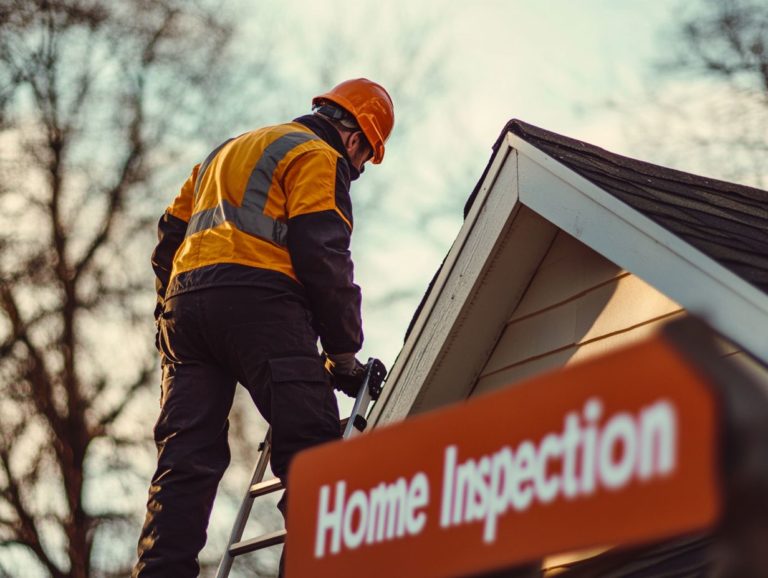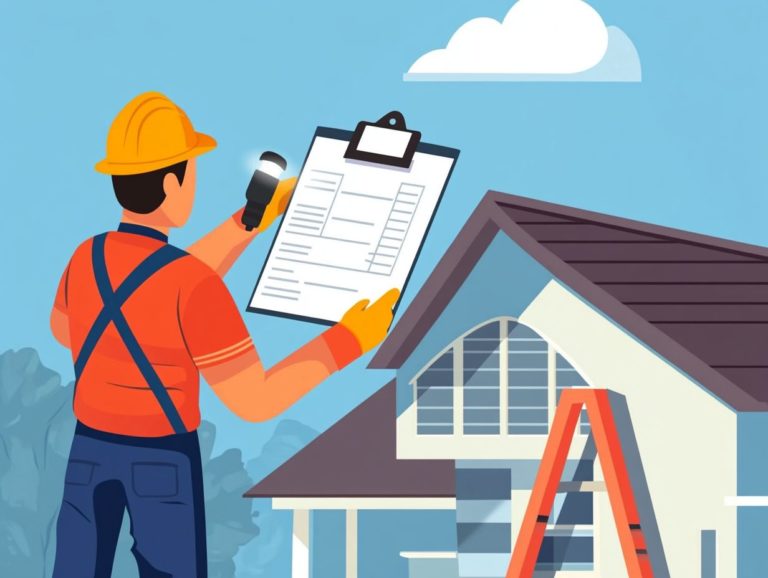Understanding the Home Inspection Process
A home inspection is an essential milestone in your real estate journey, whether you re buying or selling a property. It encompasses a detailed check-up of a home s structure and systems, uncovering potential issues that could impact your investment.
This guide walks you through what a home inspection involves, its significance for both buyers and sellers, and how to navigate the process with ease. From common findings to preparation tips and insights on understanding the inspection report, you ll be fully equipped to make informed decisions about your home.
Contents
- Key Takeaways:
- What is a Home Inspection?
- Why is a Home Inspection Important?
- What Does a Home Inspection Cover?
- The Home Inspection Process
- Common Findings in Home Inspections
- How to Prepare for a Home Inspection
- Interpreting the Home Inspection Report
- Frequently Asked Questions
- What is the purpose of a home inspection?
- Why is it important to understand the home inspection process?
- Who is responsible for conducting a home inspection?
- What does a home inspector look for during an inspection?
- How long does a home inspection usually take?
- Can a home inspection uncover all potential issues with a property?
Key Takeaways:
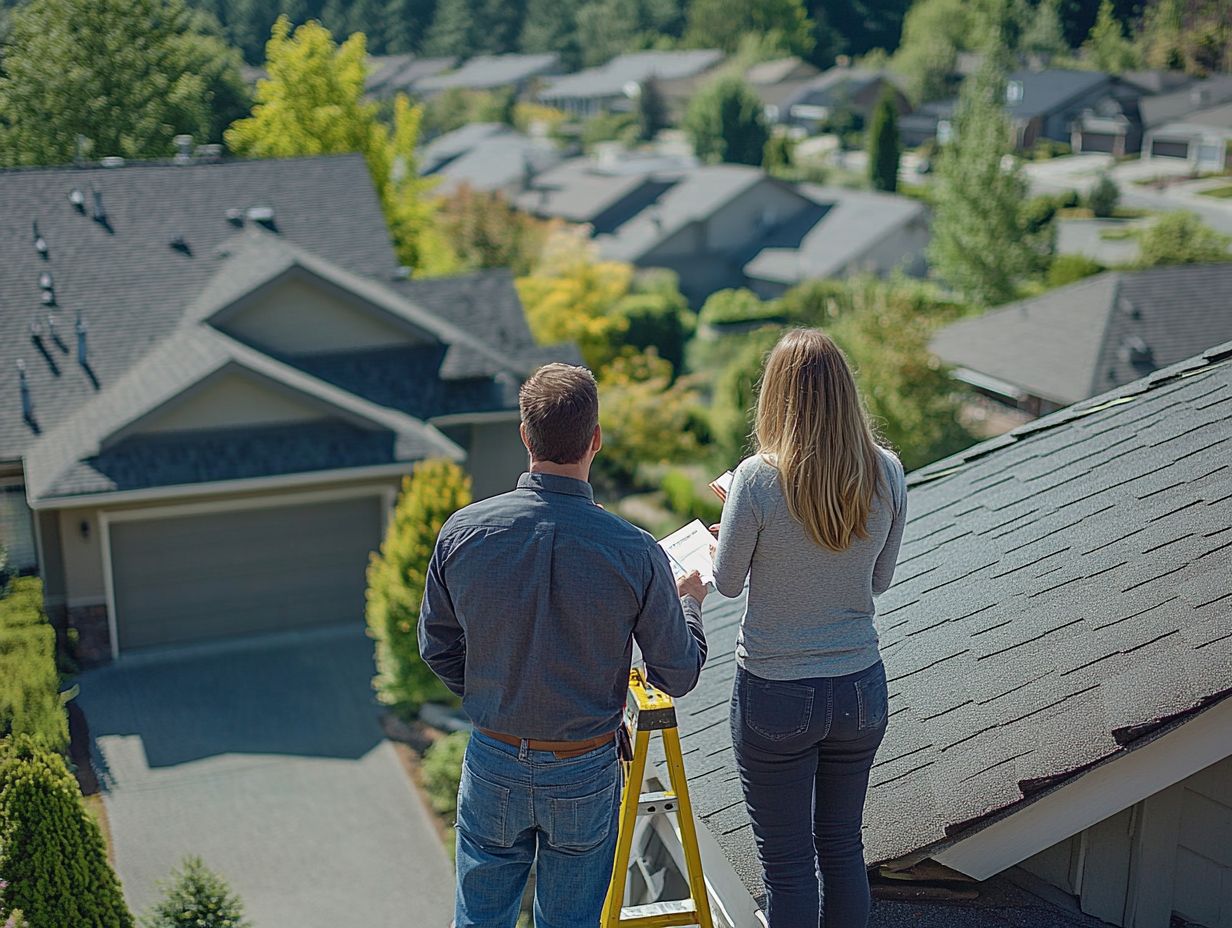
The home inspection process covers various areas and systems such as the roof, plumbing, and electrical systems. It helps identify any potential issues and red flags that may affect the value and safety of the property.
To prepare for a home inspection, sellers should declutter and make necessary fixes, while buyers should attend the inspection and ask questions. It is crucial to carefully understand the home inspection report for the next steps in the buying or selling process.
What is a Home Inspection?
A home inspection represents a thorough evaluation conducted by a qualified inspector to assess the condition of a property before finalizing the sale. This essential procedure, which includes understanding the home inspection timeline, ensures that both the home buyer and seller have a clear understanding of any potential issues that may arise, significantly impacting the transaction’s outcome.
The resulting inspection report becomes a vital document in the real estate process, guiding informed decisions for all parties involved.
Definition and Purpose
A home inspection is a detailed check-up carried out by a professional inspector, designed to assess the property’s condition and uncover any existing defects. This meticulous process safeguards your investment by revealing issues that might escape notice during a casual viewing, such as structural problems, electrical deficiencies, or plumbing concerns. For more insights, consider understanding the importance of home inspections.
For sellers, it offers invaluable insights, highlighting potential fixes that could enhance the property s marketability. A thorough home inspection empowers both parties to make confident choices. Buyers gain the knowledge necessary to negotiate repairs or price adjustments, while sellers can proactively address critical issues before listing their home.
Why is a Home Inspection Important?
A home inspection is an essential step in the real estate transaction process, offering considerable advantages for both buyers and sellers by revealing critical insights into the property s condition.
For buyers, it gives you the power to make informed decisions about your financial investment. Sellers can proactively address potential negotiation points before listing their property. This process promotes transparency and builds trust between all parties involved, ensuring a smoother transaction.
Benefits for Buyers and Sellers
The advantages of a home inspection are valuable for both buyers and sellers, offering insights that enhance negotiation tactics and facilitate informed decisions about the property’s condition.
As a buyer, you ll find that a thorough inspection is critical for grasping potential repair costs and crafting a robust negotiation strategy, ensuring that your investment is sound. By uncovering issues early on, you can use these findings to negotiate a fairer price or request essential fixes before sealing the deal.
For sellers, the benefits are equally compelling. A proactive inspection allows you to address any existing problems upfront, boosting your property s marketability and significantly lowering the risk of unexpected issues during the buyer’s inspection. This proactive stance not only streamlines the transaction process but also fosters trust between you and the buyer, setting the stage for a successful exchange.
Ready to take the next step? Schedule your home inspection today to ensure you re making the best investment possible!
What Does a Home Inspection Cover?

A home inspection reveals the true condition of a property! A comprehensive home inspection covers a wide range of areas and systems within the property, ensuring that each important aspect is carefully checked.
In your inspection, you’ll find key areas assessed, such as:
- Structural integrity
- Electrical systems
- Plumbing issues
- HVAC (heating, ventilation, and air conditioning) systems
- Foundation checks
An inspection checklist will guide this thorough process, ensuring nothing is overlooked.
Areas and Systems Assessed
During a home inspection, you can expect a thorough assessment of critical components. This includes HVAC systems, plumbing, electrical systems, and the overall structural integrity of the property.
The evaluation also includes checking the roofing conditions to ensure shingles are intact and properly installed to ward off leaks. A meticulous examination of the foundation is important; any cracks or shifts could signal deeper issues that might compromise safety.
Inspectors will check insulation to ensure energy efficiency and comfort. This affects your heating and cooling costs. They will also check windows and doors for functionality and seals.
This comprehensive approach equips you with a clear understanding of the property’s true condition. It helps you identify any potential repair needs before making that important decision.
The Home Inspection Process
The home inspection process is a meticulous, step-by-step journey that starts with scheduling the inspection and includes understanding the process of home inspections.
After that, a thorough evaluation of the property unfolds. This can take several hours depending on its size and condition. This process is essential for both home buyers and sellers, as it offers valuable insight into inspection findings and highlights any potential repairs needed.
Step-by-Step Guide
A step-by-step guide to understanding the home inspection process for buyers can be your roadmap. It helps both buyers and sellers grasp what to expect during the evaluation, including the significance of attending the inspection.
The journey begins with scheduling, where you coordinate a convenient time for the inspection. After that, the inspector dives into a thorough assessment of the property’s structure, systems, and safety features, following the home inspection process timeline.
It s essential for both buyers and sellers to be present during this phase. This allows for real-time questions and insights, creating a clearer understanding of any potential issues that may arise.
Once the inspection wraps up, the inspector prepares a detailed report that outlines findings and recommendations. Receiving this report promptly is crucial. It informs necessary negotiations and gives the power to all parties to make well-informed decisions as they move forward.
Get ready for a thorough evaluation that could save you money and headaches!
Common Findings in Home Inspections
Be on the lookout for common issues that can affect your buying or selling journey! In home inspections, you’ll often encounter a variety of issues and red flags that can significantly impact the real estate transaction.
These findings can include concerns related to structural integrity, safety hazards, and necessary repairs elements that both the home buyer and seller must carefully consider in the inspection report.
Addressing these details is essential for ensuring a smooth and informed transaction.
Issues and Red Flags to Look Out For

When conducting a home inspection, it s crucial for you to keep an eye out for issues and red flags that could signal significant problems, particularly those related to structural integrity and safety.
These warning signs can manifest in various forms, from visible cracks in the foundation to signs of water damage in vital areas like the basement and attic.
Outdated electrical systems can create serious safety hazards, while plumbing issues may lead to costly repairs further down the line.
As a buyer, you should exercise particular caution; neglecting these issues early on can lead to substantial financial burdens and safety concerns.
From a seller s standpoint, addressing these red flags before listing can boost property value and streamline the transaction process. This ultimately benefits everyone involved.
Stay informed and empowered; schedule your home inspection today!
How to Prepare for a Home Inspection
Preparing for a home inspection is essential for a smooth process that addresses both buyer concerns and seller expectations.
By taking proactive steps and understanding what inspectors focus on, you can help the inspection go well and set the stage for a positive outcome.
Tips for a Smooth Inspection Process
Using specific strategies can ensure a smooth home inspection process that meets buyer concerns and seller expectations.
It s important for both sellers and buyers to communicate openly and work together from the start. Sellers should prepare their homes by fixing minor issues and keeping them clean. This showcases the property attractively and builds trust with potential buyers.
Buyers should come ready with a list of questions and concerns to discuss during the inspection. By asking questions, you ensure everyone feels valued and heard!
Being flexible with scheduling can help everyone as well, making the inspection process less stressful for everyone involved.
Interpreting the Home Inspection Report
Understanding the home inspection report is a key step in the real estate process. This document outlines the findings and provides valuable insights into the property’s condition, making it essential to know what to expect during the home inspection process.
By understanding these results, whether you’re a buyer or seller, you can navigate follow-up costs and necessary repairs with confidence.
Understanding the Results and Next Steps
Grasping the results of the home inspection is crucial for determining your next steps, including any repair negotiations that may arise from the report.
By analyzing the findings carefully, you can understand the property’s condition and identify areas needing urgent attention.
As a buyer, prioritize the issues highlighted in the report, considering potential costs and their impact on safety and functionality.
Sellers should reflect on the inspection results to anticipate buyer concerns while balancing their willingness to negotiate repairs or price reductions.
Effective communication about these findings will lead to smoother negotiations and informed decisions, ensuring a fair and transparent process for everyone involved.
Frequently Asked Questions
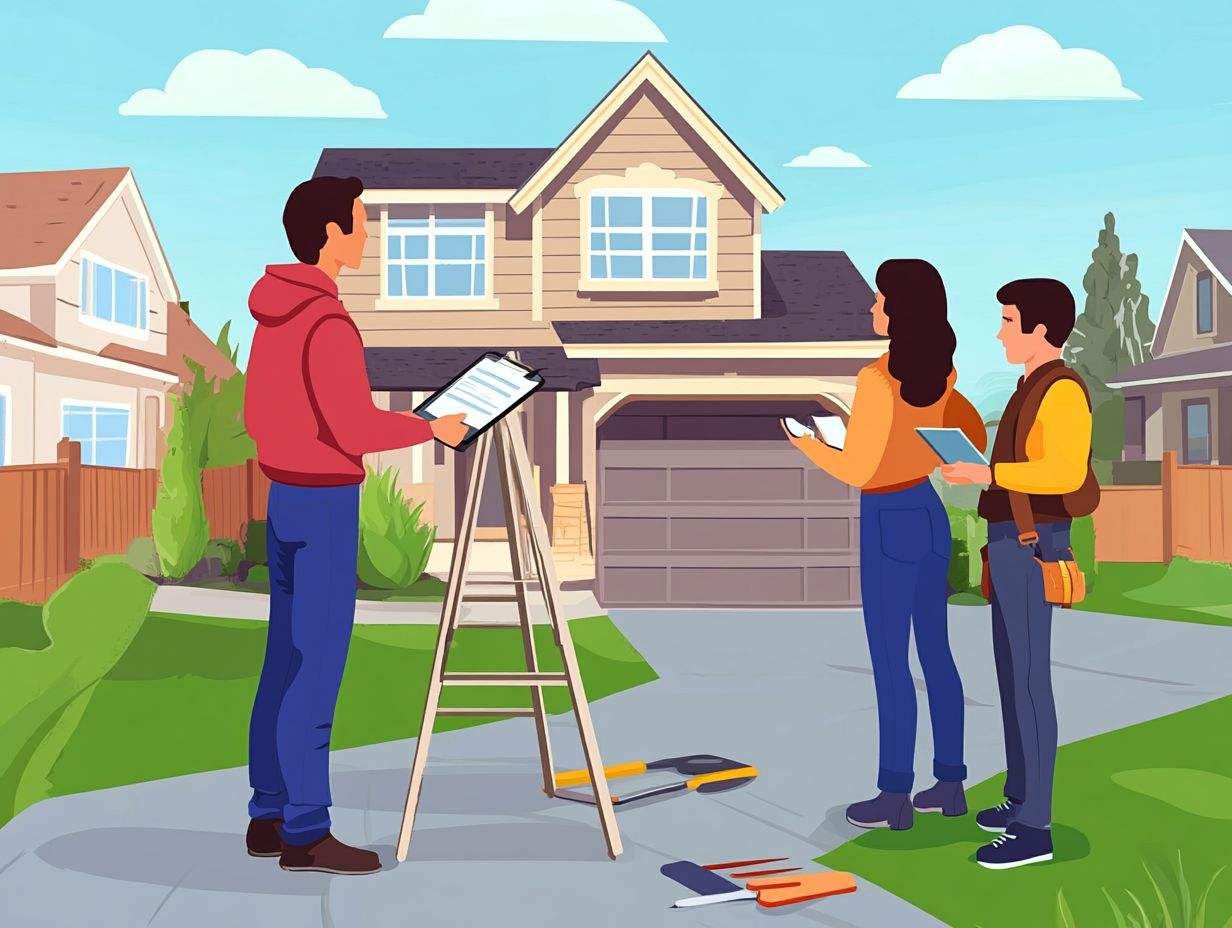
What is the purpose of a home inspection?
A home inspection is a thorough examination of visible and accessible areas of a property to assess its overall condition. The goal is to find any issues or defects that may affect the safety, functionality, or value of the home.
Why is it important to understand the home inspection process?
Knowing the home inspection process helps buyers and sellers know what to expect, enabling them to make informed decisions about the property. It also allows them to ask relevant questions and address any concerns.
Who is responsible for conducting a home inspection?
A certified home inspector with the right training and expertise conducts the inspection. They are skilled in identifying potential problems and providing an unbiased assessment of the property.
What does a home inspector look for during an inspection?
A home inspector examines the structure, exterior, roof, plumbing, electrical systems, HVAC, insulation, and interior of the home. They also check for safety hazards, code violations, and potential maintenance issues.
How long does a home inspection usually take?
The length of a home inspection can vary based on the size, age, and condition of the home. Generally, it takes about 2-3 hours, though larger or older homes may require more time.
Can a home inspection uncover all potential issues with a property?
A home inspection cannot guarantee that all problems with a property will be found. Some issues may be hidden or hard to reach.
Inspectors may not have specialized knowledge in every area. Consider hiring additional professionals and reviewing information provided by the seller.

